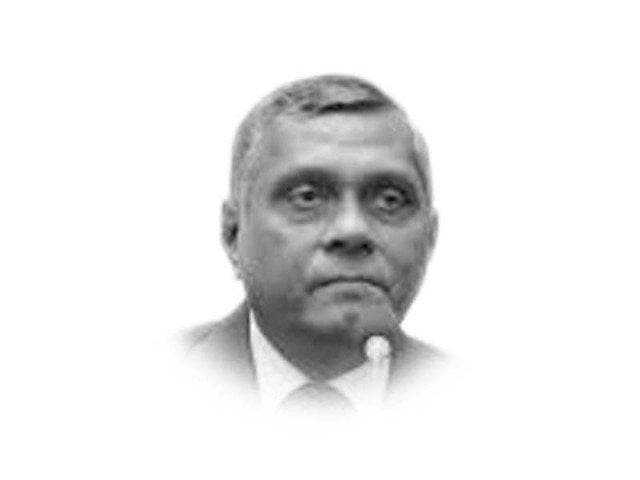
While hearing petitions against Jammu & Kashmir Reorganization Act, the Indian Supreme Court asked state authorities to respond if there was a timeline to convert the occupied Kashmir from a union territory to a state. Earlier, the top court had admitted petitions challenging the revocation of articles 370 and 35-A that granted special status to the occupied territory. Thus continues what is going to be a long legal battle to take the case of Indian Illegally Occupied Jammu & Kashmir (IIOJK) to its logical conclusion.
A five-judge bench that has been hearing the petitions for two weeks observed on August 30 that the reorganization of the state was not “one of a kind” as was pointed out by Solicitor General Tushar Mehta. That bench, headed by Chief Justice DY Chandrachud and including Justices Sanjay Kishan Kaul, Sanjiv Khanna, BR Gavai and Surya Kant, noted that the case of J&K bifurcation is no different from those of other Indian states that have experienced the same. The Chief Justice disagreed with the Solicitor General who argued that the case of J&K is different because the region shares border with two countries, and mentioned that Punjab and Northeast also share borders with foreign countries and can be equated with J&K. Yet, the Chief Justice in the August 30 hearing took note of how matters of national security may be critical in case of J&K.
The crisis that plunged the Indo-Pak relations into another phase of degeneration was triggered on August 5, 2019 when the Indian parliament ended the special status of J&K and declared it — as well as Ladakh — union territories to be governed directly by New Delhi. After getting approval from the parliament by a two-thirds majority, the reorganization bill was signed by the president to become part of the Indian constitution. Illegality was reflected in that bill because according to article 370 of the Indian constitution any change in the status of J&K had to be approved by the Constituent Assembly of the state which was non-functional at that time.
The Solicitor General tried to sidetrack the ground realities in J&K while giving arguments before the five-member bench by stating, “If Gujarat, or Madhya Pradesh, was to be bifurcated, the parameters would be different. But when [the same has to happen to] Jammu and Kashmir; considering its strategic importance, border state, history of terrorism, history of infiltration, history of outside influence, there would be some considerations. We share borders with at least four countries, all of which may not be friendly — to put it mildly.”
The Solicitor General’s strange logic was contested by the Chief Justice, arguing that “India has many states that share border with neighbouring countries, and Jammu and Kashmir is no exception.” Citing the “complex” situation of J&K in terms of national security, the Solicitor General said, “The history also shows how the situation in Kashmir is developing… the deaths of civilians, the deaths of security forces, the number of attacks, stone-pelting, the hartals, paralyzing schools, hospitals, banks, businesses and everything. All of these are policy considerations. Whenever a state reorganization takes place, not only are their policy considerations as to why but also a blue print as to what the Center would do after the state is reorganized. How to bring youth in mainstream? How to employ, float schemes? There are several considerations. We will have to start with democratic local self-governance so people participate in the internal institutions for their own good.”
It appears that the legal battle in the Indian Supreme Court challenging the Jammu & Kashmir Reorganization Act will continue but the bench is not giving a free hand to the state arguing that the misuse of authority and power by New Delhi in union territories of Ladakh and J&K along with the absence of democratic process tend to question the legitimacy of the entire process that ended the special status of J&K on August 5, 2019.
India’s top court is the last hope for those who are determined not to accept the Jammu & Kashmir Reorganization Act and want the country’s highest legal organ to give a fair judgment which can restore the special status of the Muslim-majority territory. To what extent the Indian Supreme Court will give a judgment adhering to the supremacy of law remains to be seen. While the Solicitor General stated before the Supreme Court that the union territory status of J&K was not permanent, he failed to mention how much time the Center will take to restore the J&K’s electoral status which has been suspended for many years. While a roadmap for the restoration of electoral democracy in J&K is sought by the five-member bench, the Indian state has so far given no time framework.
The ongoing legal battle needs to be examined from two angles.
First, legally, technically and morally, there is justification of absorbing J&K into the Indian state by ending the special status granted to it under the Indian constitution. When there was no Constituent Assembly in Srinagar at the time the J&K Reorganization Act was passed, how can that act be deemed legal and constitutional? According to the law, without the approval of the Constituent Assembly of J&K, article 370 cannot be revoked. This legal point has been focused by the petitioners challenging the August 5, 2019 act. New Delhi can give all sorts of reasons — ranging from threats to national security, terrorism and violence — to justify the imposition of the Center’s rule in Srinagar but cannot win the legal battle if decided on merit.
Second, in view of its illegal stance on J&K, the Modi regime will attempt a Pulwama-type, false-flag operation and put the blame on Pakistan in order to make a case before Supreme Court that it needs more time to restore the democratic process in J&K. A Pulwama-type operation would also help the BJP in the May 2024 general elections.
The Modi regime after holding G-20 tourism conference Srinagar in May this year is now planning to hold Miss World contest in J&K on December 8 so as to give the impression to the world that all is well in the disputed region. Can India get away with its illegal act of August 5, 2019 by holding such events?
Published in The Express Tribune, September 5th, 2023.
Like Opinion & Editorial on Facebook, follow @ETOpEd on Twitter to receive all updates on all our daily pieces.
























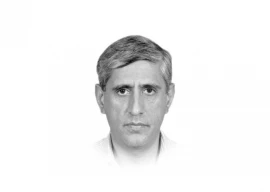
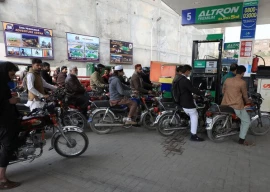
1715843823-0/WhatsApp-Image-2024-05-16-at-12-14-16-(1)1715843823-0-270x192.webp)
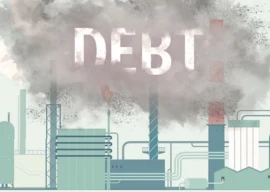
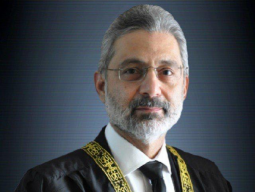
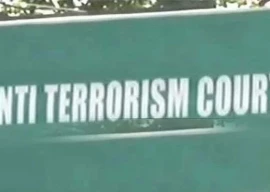
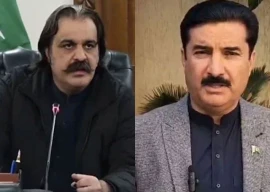

COMMENTS
Comments are moderated and generally will be posted if they are on-topic and not abusive.
For more information, please see our Comments FAQ